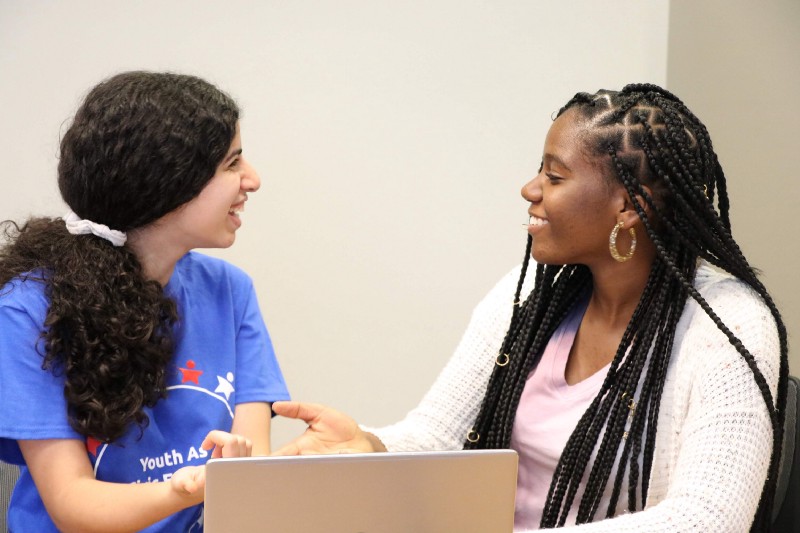CivXNow Fellow, Caleb Dunson shares his thoughts on the importance of voting and civic education.

Few moments in recent history compare in magnitude or breadth to the events that have taken place this year. In only a few short months, a pandemic is ripping through our society, upending cultural mainstays that we once took for granted. The deaths of George Floyd, Breonna Taylor, Ahmaud Arbery, and numerous Black people have placed the fight for social justice on the national stage. As society adjusts to life online, schools have developed reopening plans leaving many teachers, students, and their families exposed or scrambling to adjust to online learning. With political tensions approaching their limits, the November election is poised to become an unprecedented event, with a record number of citizens planning to vote by mail. It would be easy to shy away from these unique challenges, abandoning this year in hope of a brighter 2021. We must get to work, now. Our communities of worthy, hard-working citizens, especially the youth, do not have the luxury to wait.
Civics education is one of the most critical ways for young people to make sense of the dizzying amount of events occurring right now. It can ground students in the knowledge of their ability to create change in a world where everything seems to be out of control. It can provide inspiration and motivation for students to engage in democracy. It can empower students with the tools they need to make an impact on their community through politics and organizing.
That is why we cannot give up the fight to educate young people about civics. Continuing to impart knowledge in the next generation will spur them to action at a time when youth voice is desperately needed in government. With a civics foundation, the dynamic energy that already exists among young activists can be focused and refined, making youth-led movements all the more powerful.
This era has seen civic engagement from everyday Americans at an unprecedented level, and people regardless of their political leanings or personal demographics, are eager for change. As the upcoming election approaches, the civic energy in the air has become palpable, and in this moment, we have the opportunity to transform the face of our country.
But our sentiments must be coupled with action.
Voting is crucial to moving forward as a country. To get elected officials to listen to the changes we seek, we must become active members of their constituency. That only happens through voting. It is essential that we, therefore, are inspired to include our fellow community members in the political process — registering as many people as we can to vote; sharing resources (like mail-in ballot applications) that expand access to those who face barriers to voting; and positively reinforcing the act of voting by acknowledging and celebrating those who cast their ballots.
We continue to face the challenge of voter apathy. This year, many voters find themselves ceding civic power to candidates they believe are uninspiring or do not represent their interests. Those feelings are valid and represent a larger failing in our election system. Voting is by no means an end-all solution to the abundance of problems facing our nation. However, it can be used as a tool to amplify voices, advance agendas, and accelerate action.
Strategies used by youth and non-voting civic participants- protesting, volunteering, petitioning, donating, and other civic actions are powerful avenues for producing political pressure that leads to action. When we add voting to this list of civic engagement experiences, it makes the demands of the people ever more significant, supporting these civic acts through legislative means.
At the local level, efforts such as letter writing bolster the affectivity of each vote. When elected officials are aware of your beliefs and understand your commitment to voting on those beliefs, they are compelled to hear your concerns and include your solutions. Without that leverage, advocacy efforts run the risk of losing impact and relevance.
At the national level, Americans tend to decide who to vote for based on a small number of key hot button social issues, and politicians understand this. Thus, policy proposals aimed at popular problems take center stage in national elections. Informed and engaged citizens take up these political issues through protest, media awareness campaigns, and coalition building. When coalitions use their sizable influence, they have the potential to steer the national political conversation and advance policy agendas.
Amidst a frightening amount of uncertainty in education and politics, there lies an incredible opportunity to press our nation forward and reimagine society. Voting and civic education are the keys to that progress. Now more than ever, we must commit ourselves to use those mechanisms to pursue our civic goals. The work will be difficult, challenges and obstacles will inevitably arise, and frustration and doubt may set in. But who said changing the world would be easy?
About the Author:
 Caleb Dunson is a freshman at Yale University. He was a member of the inaugural iCivics Equity in Civics Youth Fellowship and currently serves as a CivXNow Fellow. Read more from Caleb in his op-ed in the Chicago Tribune: After George Floyd’s death, remedy for apathy is equity in civics education and his thought in Inside Higher Ed: Tortured by Acceptance.
Caleb Dunson is a freshman at Yale University. He was a member of the inaugural iCivics Equity in Civics Youth Fellowship and currently serves as a CivXNow Fellow. Read more from Caleb in his op-ed in the Chicago Tribune: After George Floyd’s death, remedy for apathy is equity in civics education and his thought in Inside Higher Ed: Tortured by Acceptance.


 See All
See All